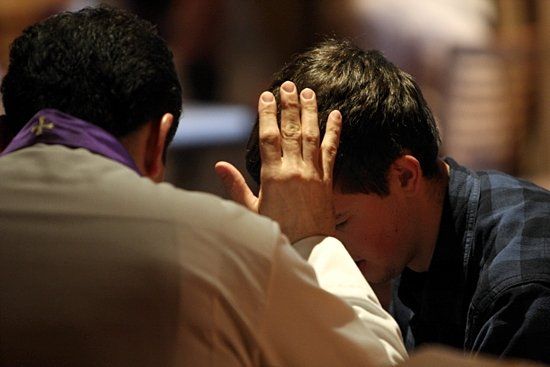Penance
This is the Sacrament in which sins committed after Baptism are forgiven. It results in reconciliation with God and the Church. (US Catholic Catechism for Adults, Glossary)
As sinners, we recognize both our human limitations and failures and also God’s limitless love for us. God loves and forgives us, and the sacrament of reconciliation makes this gift of forgiveness a reality in the life of the sinner. We are restored to a proper relationship with God. Through the cleansing of our sins and guilt, we are once again made whole and holy.
In our Collaborative, the Sacrament of Reconciliation is currently available:
St. Pius X
Tuesdays 9:30 -10:30 a.m. (after the 9:00 a.m. Mass)
St. Anne
Wednesdays 6:00-7:00 p.m.
By Appointment
Call 617-364-9501
Prior to going to Confession, click the link below for a guide to Confession for adults.
Frequently Asked Questions on the Sacrament of Penance

The sacrament of penance is one of two sacraments of healing. It is the sacrament that brings spiritual healing for Catholics who have distanced themselves from God by committing sins which hurt our relationship with God, self and others.
